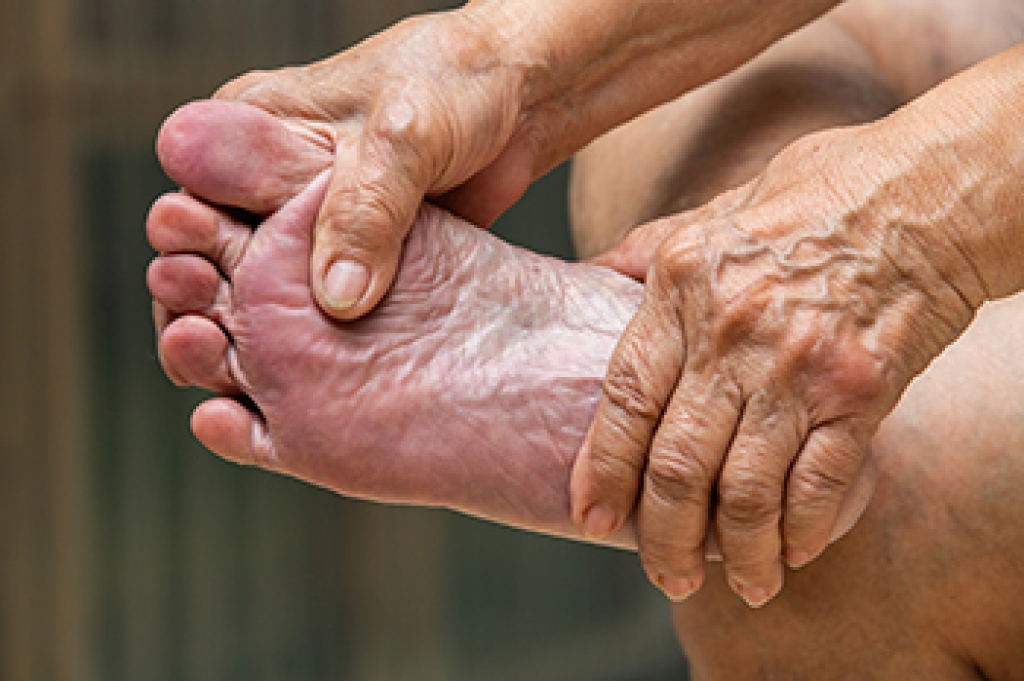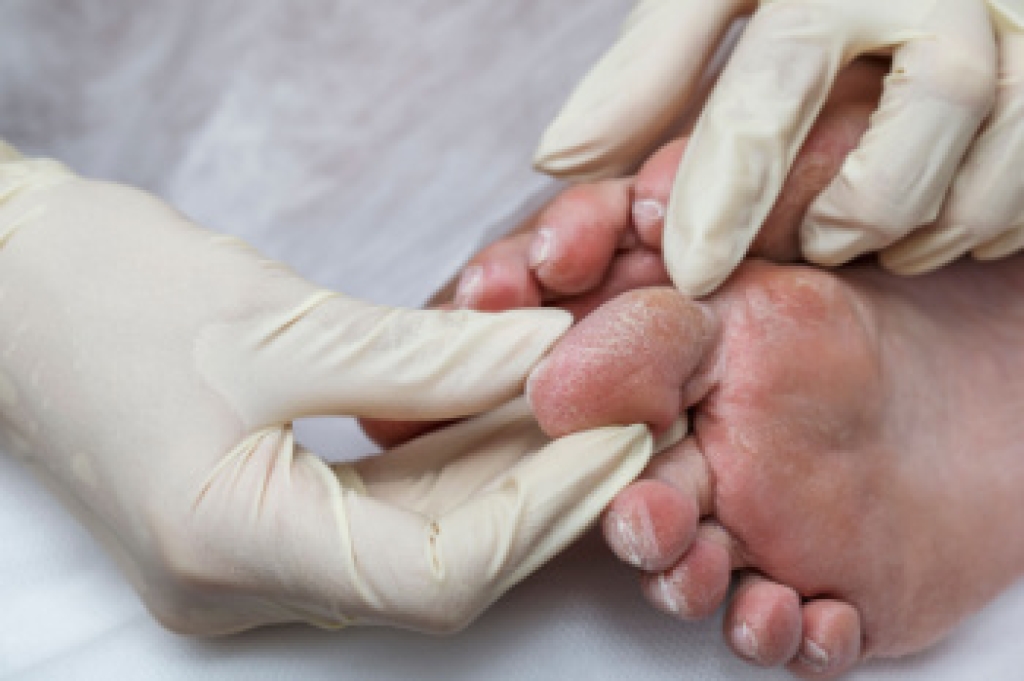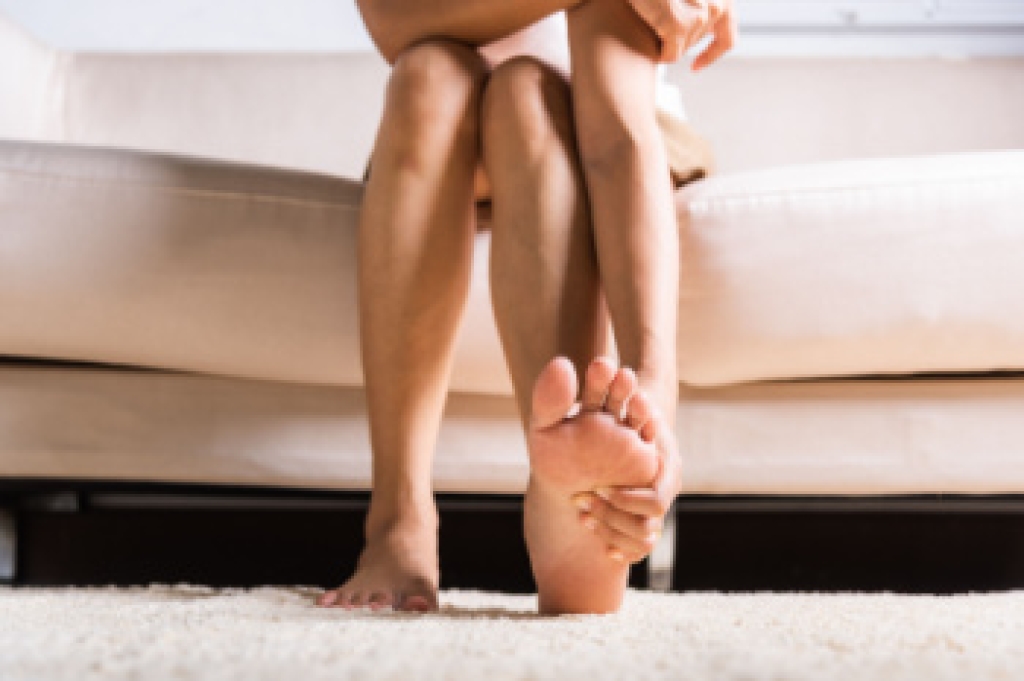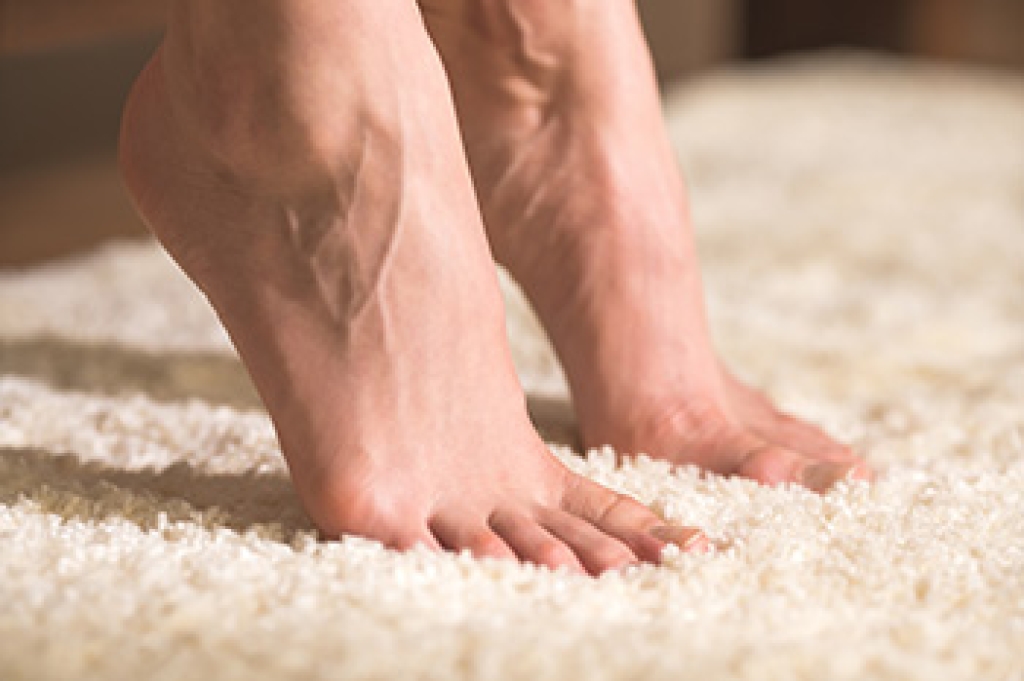
Chronic foot pain is a common concern among older adults, and it often increases with advancing age. Years of wear and tear can weaken bones, joints, ligaments, and soft tissues, making the feet more vulnerable to discomfort and injury. Risk factors include being female, excess body weight, and conditions such as osteoarthritis, which can cause stiffness, swelling, and ongoing pain. Depression may also play a role by altering pain perception and reducing physical activity, which can further strain the feet. A podiatrist can identify the source of chronic foot pain through a thorough evaluation and imaging, when needed. Treatment may include custom orthotics, footwear guidance, targeted therapies, and management of underlying conditions. If foot pain is limiting your mobility or quality of life, it is suggested that you seek professional care with a podiatrist who can treat various foot and ankle conditions, and guide you on elderly foot care tips.
Proper foot care is something many older adults forget to consider. If you have any concerns about your feet and ankles, contact Afsha Naimat-Shahzad, DPM from Leander Foot & Ankle. Our doctor can provide the care you need to keep you pain-free and on your feet.
The Elderly and Their Feet
As we age we start to notice many changes in our body, but the elder population may not notice them right away. Medical conditions may prevent the elderly to take notice of their foot health right away. Poor vision is a lead contributor to not taking action for the elderly.
Common Conditions
- Neuropathy – can reduce feeling in the feet and can hide many life-threatening medical conditions.
- Reduced flexibility – prevents the ability of proper toenail trimming, and foot cleaning. If left untreated, it may lead to further medical issues.
- Foot sores – amongst the older population can be serious before they are discovered. Some of the problematic conditions they may face are:
- Gouging toenails affecting nearby toe
- Shoes that don’t fit properly
- Pressure sores
- Loss of circulation in legs & feet
- Edema & swelling of feet and ankles
Susceptible Infections
Diabetes and poor circulation can cause general loss of sensitivity over the years, turning a simple cut into a serious issue.
If you have any questions, please feel free to contact our office located in Leander, TX . We offer the newest diagnostic and treatment technologies for all your foot care needs.





